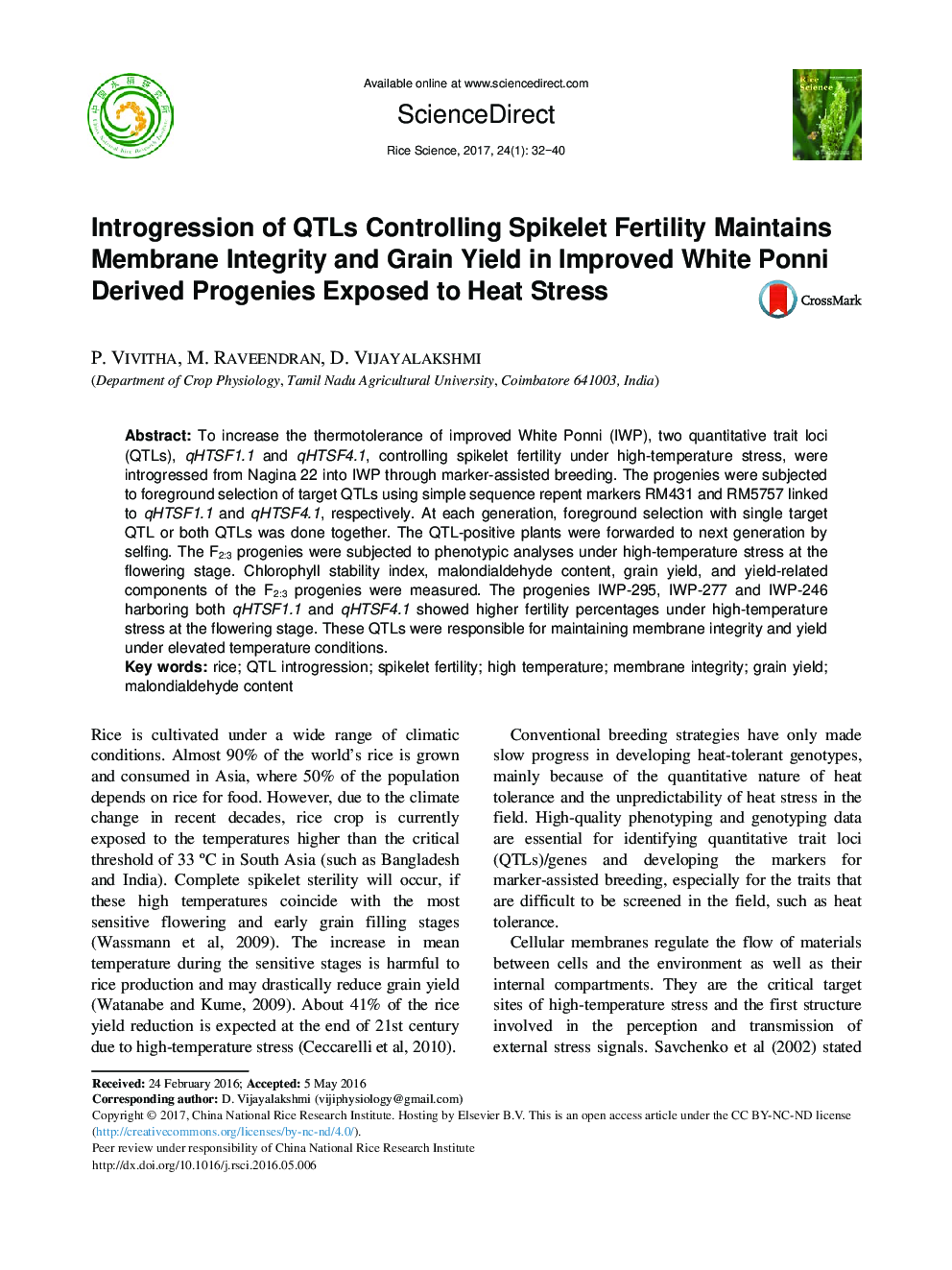| Article ID | Journal | Published Year | Pages | File Type |
|---|---|---|---|---|
| 8877385 | Rice Science | 2017 | 9 Pages |
Abstract
To increase the thermotolerance of improved White Ponni (IWP), two quantitative trait loci (QTLs), qHTSF1.1 and qHTSF4.1, controlling spikelet fertility under high-temperature stress, were introgressed from Nagina 22 into IWP through marker-assisted breeding. The progenies were subjected to foreground selection of target QTLs using simple sequence repent markers RM431 and RM5757 linked to qHTSF1.1 and qHTSF4.1, respectively. At each generation, foreground selection with single target QTL or both QTLs was done together. The QTL-positive plants were forwarded to next generation by selfing. The F2:3 progenies were subjected to phenotypic analyses under high-temperature stress at the flowering stage. Chlorophyll stability index, malondialdehyde content, grain yield, and yield-related components of the F2:3 progenies were measured. The progenies IWP-295, IWP-277 and IWP-246 harboring both qHTSF1.1 and qHTSF4.1 showed higher fertility percentages under high-temperature stress at the flowering stage. These QTLs were responsible for maintaining membrane integrity and yield under elevated temperature conditions.
Related Topics
Life Sciences
Agricultural and Biological Sciences
Agricultural and Biological Sciences (General)
Authors
P. Vivitha, M. Raveendran, D. Vijayalakshmi,
